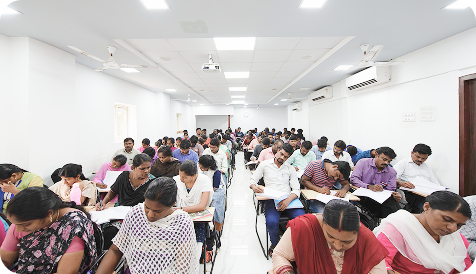Effective Revision Strategies for NEET Last 30 Days
The last 30 days before NEET can be crucial in determining your success. With a proper revision strategy, you can maximize your score and boost your confidence. Here’s a step-by-step guide to revising effectively in the final month before NEET.
1.Create a Structured Revision Plan
- Divide your syllabus into small, manageable sections.
- Allocate time for each subject based on your strengths and weaknesses.
- Ensure daily revision of key topics, formulas, and concepts.
2.Focus on NCERT Books
- NCERT textbooks should be your primary focus, especially for Biology and Chemistry.
- Revise all diagrams, tables, and summary points given at the end of each chapter.
- Highlight important points to make quick revisions easier.
3.Solve Previous Year Question Papers
- Practice at least one full-length previous year paper every day.
- Identify recurring topics and frequently asked questions.
- Analyze your mistakes and focus on weak areas.
4.AttemptMock Tests Regularly
- Take full-length mock tests in a timed environment to simulate exam conditions.
- Aim for at least 10-15 mock tests in the last month.
- Evaluate your performance after every test and adjust your revision strategy accordingly.
5.Revise Important Formulas and Diagrams
- Maintain a separate notebook for formulas, short notes, and key points.
- Go through physics formulas daily and solve a few numerical problems.
- Memorize biological diagrams and reactions in Chemistry.
6.Use Flashcards and Mnemonics
- Utilize flashcards for quick revision of difficult concepts.
- Create mnemonics to remember complex information efficiently.
- Engage in active recall techniques to reinforce learning.
7.Focus on Weak Areas
- Identify your weak subjects or topics and give them extra attention.
- Revise difficult concepts multiple times using short notes and video lectures.
- Seek clarification for doubts from teachers or online resources.
8.Maintain a Healthy Routine
- Get at least 6-7 hours of sleep daily to ensure proper brain function.
- Eat nutritious food and stay hydrated.
- Take short breaks during study sessions to avoid burnout.
9.Avoid New Topics
- Do not start new topics in the last few weeks; focus on revising what you already know.
- Strengthen concepts you are confident in rather than attempting unfamiliar topics.
10.Stay Positive and Confident
- Avoid stress and self-doubt; maintain a positive mindset.
- Engage in light physical activities or meditation to stay relaxed.
- Trust your preparation and give your best effort.
Frequently Asked Questions (FAQs)
1.How many hours should I study daily in the last 30 days before NEET?
A minimum of 8-10 hours of focused study is recommended, including revision, mock tests, and practice sessions. However, quality of study matters more than the number of hours.
2.Is it necessary to take a mock test every day?
While it is beneficial to take full-length mock tests regularly, you should balance it with revision. Ideally, 3-4 mock tests per week, increasing in the final two weeks, will help in time management and accuracy.
3.What should I do if I forget concepts during revision?
Use active recall methods like writing down key points, discussing with friends, and using flashcards. Repeating concepts multiple times in short intervals will reinforce memory.
4.Should I focus more on Biology since it carries the most marks?
While Biology is crucial, do not neglect Physics and Chemistry. A balanced approach will help you achieve an overall high score. Prioritize weak areas but ensure all three subjects get adequate revision time.
5.Can I skip difficult topics that I struggle with?
If a topic is extremely difficult and less important in terms of weightage, you can spend minimal time on it. However, ensure that you master high-weightage topics and frequently asked questions.
Conclusion
The last 30 days before NEET should be focused on structured revision, regular practice, and maintaining a calm mindset. Follow these strategies to maximize your retention, boost confidence, and improve your overall performance on the exam day. Good luck!


